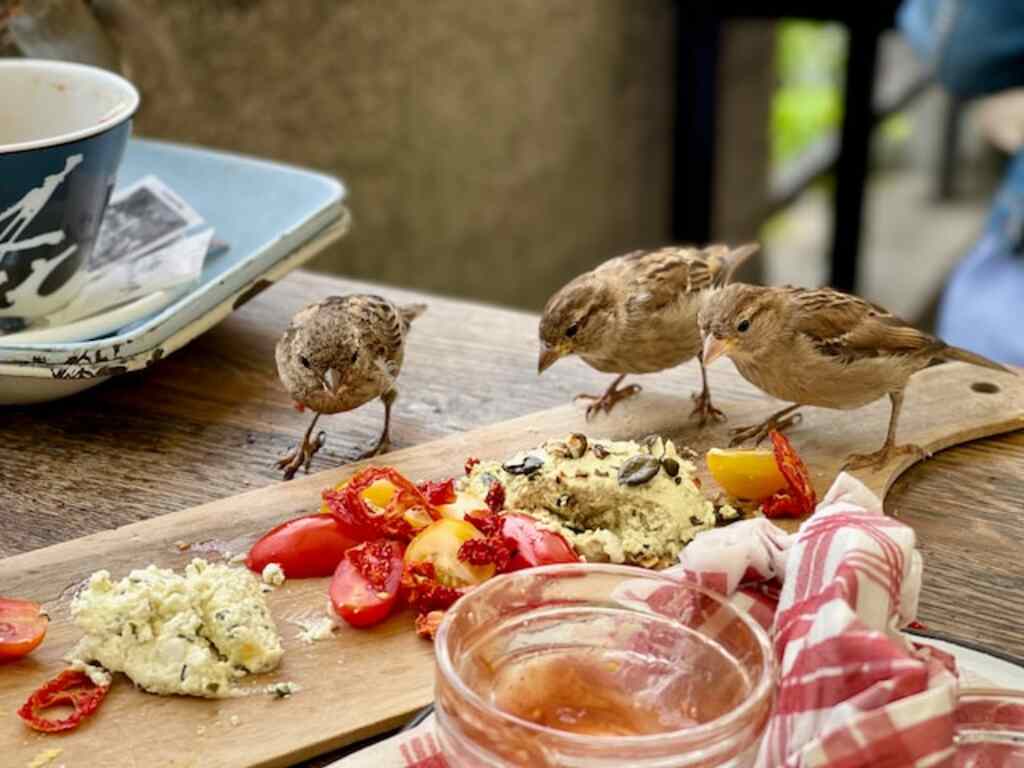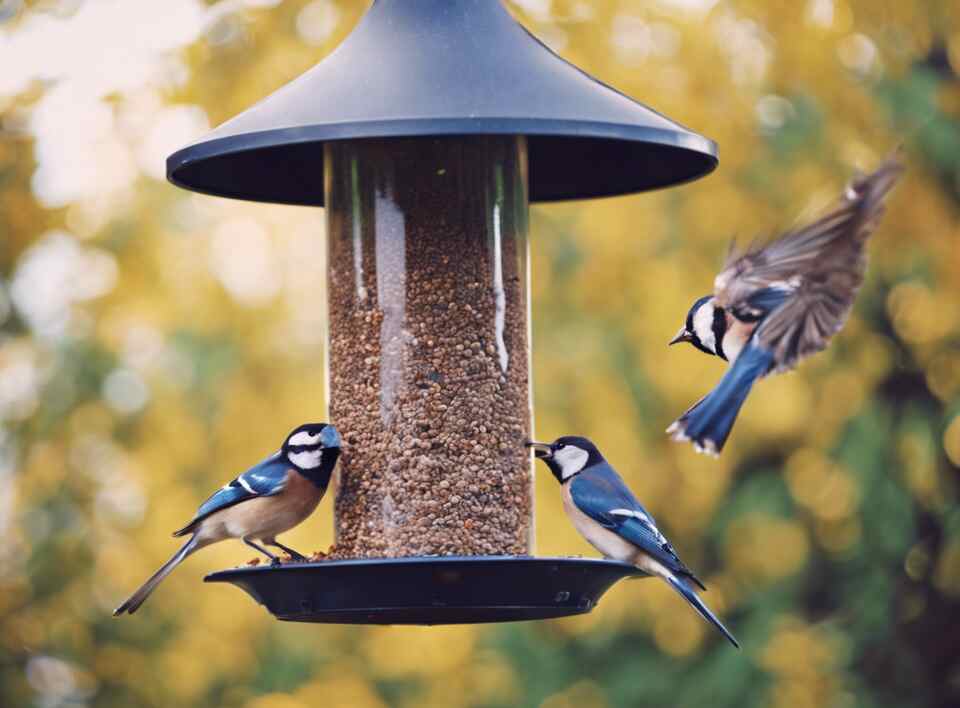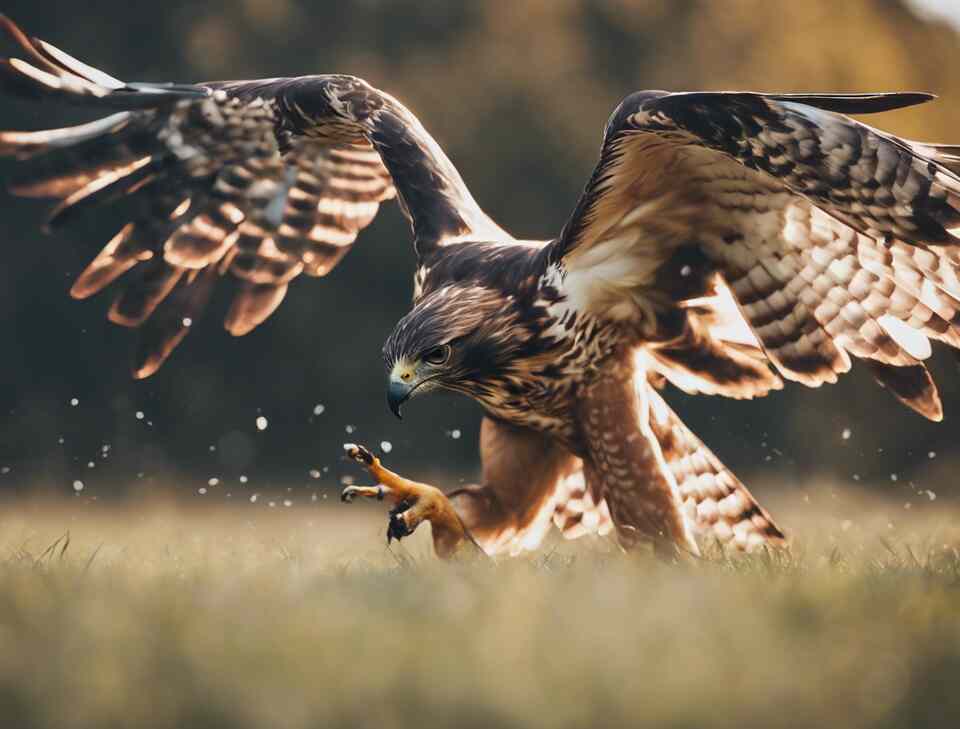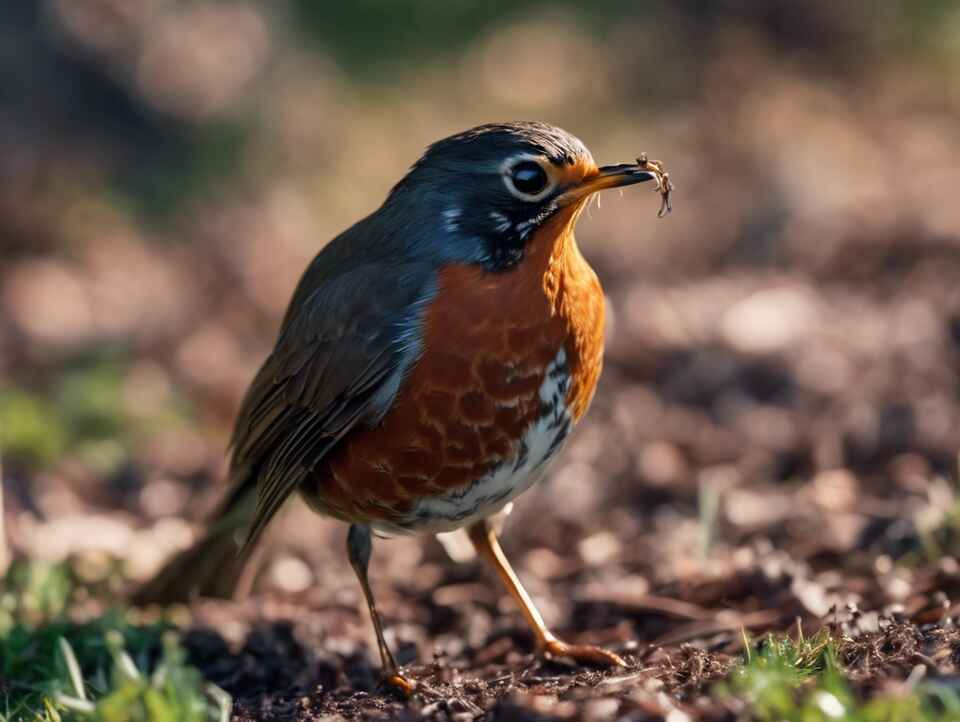Birds have diverse diets based on their species, habitats, and feeding behaviors. Understanding what birds eat is crucial for bird watchers, ornithologists, and anyone looking to attract specific bird species to their yards or gardens. This ultimate guide to bird diets explores the various types of foods birds consume, shedding light on the fascinating world of avian feeding habits.
Table of Contents
- 1 Types of Bird Diets: Understanding the Varieties of Foods Birds Consume
- 2 The Importance of Seeds in a Bird’s Diet: Nutritional Benefits and Varieties
- 3 Insects and Birds: Exploring the Relationship and Impact on Avian Diets
- 4 Fruits and Berries: How They contribute to Bird Diets and Health
- 5 Human Interactions: The Effects of Bird Feeders and Human-Supplied Foods on Avian Nutrition
- 6 Conclusion
- 7 Author
Types of Bird Diets: Understanding the Varieties of Foods Birds Consume
Seeds and Grains
Seeds and grains are staple foods for many bird species. Finches, sparrows, doves, and pigeons are known to have a diet primarily consisting of seeds. Sunflower seeds, millet, and thistle are popular choices among backyard birds. Providing seed feeders can attract a wide variety of seed-eating birds to your feeding station.
Insects and Worms
Insect-eating birds play a vital role in controlling insect populations in ecosystems. Thrushes, warblers, flycatchers, and wrens are insectivorous birds that feed on insects, worms, caterpillars, and spiders. Offering mealworms or suet cakes rich in insects can entice insect-eating birds to visit your yard.
Fruits and Berries
Fruits and berries are a favorite food source for many bird species. Robins, cedar waxwings, mockingbirds, and bluebirds enjoy feeding on a variety of fruits, including berries, apples, and grapes. Planting fruit-bearing trees and shrubs in your garden can attract fruit-loving birds throughout the year.
Nectar
Hummingbirds are well-known for their nectar-feeding diet. These tiny birds have long, specialized bills and tongues adapted for sipping nectar from flowers. Hanging nectar feeders filled with a solution of water and sugar can attract hummingbirds to your yard, providing them with the energy they need.
Fish
Waterbirds like herons, kingfishers, and eagles have a diet that includes fish. These birds are skilled hunters, catching fish from rivers, lakes, and oceans. If you live near water bodies, you may spot fish-eating birds diving for their aquatic prey or patiently waiting by the shore for the perfect moment to strike.
Small Mammals
Birds of prey, such as owls, hawks, and eagles, hunt small mammals like mice, voles, and rabbits. These carnivorous birds have sharp talons and beaks for capturing and devouring their prey. By creating a habitat that attracts small mammals, you may also attract raptors looking for their next meal.
Human Food
Some birds have adapted to urban environments and have incorporated human food into their diets. Pigeons, gulls, crows, and starlings scavenge for scraps in cities and towns, consuming human foods like bread, French fries, and leftovers. While it’s essential to appreciate wildlife, it’s also crucial to maintain a balanced, natural diet for birds.
Understanding the diversity of bird diets is key to promoting bird conservation, supporting backyard bird populations, and appreciating the beauty of avian biodiversity. Whether you’re a seasoned bird enthusiast or a beginner backyard birder, observing what birds eat can deepen your connection to these magnificent creatures.
By providing a variety of foods in your feeders, garden, or local environment, you can create a bird-friendly space that benefits both birds and bird enthusiasts alike.
The Importance of Seeds in a Bird’s Diet: Nutritional Benefits and Varieties
Birds have diverse diets, with seeds playing a crucial role in their nutrition. Seeds are a staple food source for many bird species, offering essential nutrients and energy to support their daily activities. Let’s delve into the significance of seeds in a bird’s diet, exploring the nutritional benefits they provide and the various seed varieties that attract different bird species.
Nutritional Benefits of Seeds for Birds
Seeds are packed with essential nutrients that are vital for the health and well-being of birds. They are rich in carbohydrates, proteins, healthy fats, vitamins, and minerals. Carbohydrates found in seeds provide a quick energy boost, which is particularly important for birds that are constantly on the move. Proteins aid in muscle development and maintenance, supporting birds’ growth and physical strength. Healthy fats are an excellent source of energy and help birds maintain a healthy weight.
Seed Varieties and Their Attraction to Birds
Different bird species have varying preferences when it comes to seed types. Sunflower seeds are a favorite among many birds, including finches, cardinals, and chickadees. Nyjer seeds, also known as thistle seeds, are particularly attractive to goldfinches and siskins. Millet seeds are favored by sparrows, doves, and juncos. Black oil sunflower seeds are highly nutritious and appeal to a wide range of bird species due to their high oil content.
Importance of Offering a Variety of Seeds
To attract a diverse array of birds to your backyard feeder, it is essential to offer a variety of seeds. Different bird species have specific dietary requirements, and providing a mix of seeds ensures that you cater to a wide range of birds. By offering a diverse selection of seeds, you can attract colorful songbirds, woodpeckers, sparrows, and other fascinating species to your yard, creating a vibrant and lively environment for bird-watching.
Tips for Feeding Birds Seeds
When feeding birds seeds, it is essential to ensure that the seeds are fresh and free from mold. Moldy seeds can be harmful to birds and should be discarded. Additionally, keeping bird feeders clean and regularly replenishing the seeds helps attract more birds to your backyard. Providing a consistent source of fresh water alongside seeds is also crucial for the well-being of birds, especially during the hot summer months.
Seeds play a vital role in a bird’s diet, offering essential nutrients and energy to support their daily activities. By understanding the nutritional benefits of seeds and the preferences of different bird species, you can create a bird-friendly environment in your backyard. Offering a variety of seeds, keeping feeders clean, and providing fresh water are key steps in attracting a diverse range of birds and fostering a thriving ecosystem in your outdoor space.
Insects and Birds: Exploring the Relationship and Impact on Avian Diets
In the world of birds, insects play a vital role in their diets, providing essential nutrients and energy for these feathered creatures. Let’s delve into the intricate relationship between insects and birds, exploring how this dynamic impacts avian diets.
Understanding Avian Diets: A Diverse Array of Foods
Birds have diverse dietary preferences, with different species exhibiting varying feeding habits. While some birds are primarily seed-eaters, others rely on fruits, nectar, or even small animals like insects as their main source of nutrition. This wide range of dietary choices reflects the adaptability of birds to their environments.
The Importance of Insects in Bird Diets
Insects are a crucial component of many birds’ diets, providing essential proteins, fats, and nutrients needed for growth, development, and survival. Insect-eating birds, known as insectivores, play a vital role in controlling insect populations, thereby helping to maintain ecological balance. Without insects in their diet, many bird species would struggle to thrive.
Impact of Insects on Avian Health
Insects are not only a source of nutrition for birds but also offer health benefits. Many insects contain high levels of vitamins and minerals that are beneficial for avian health. For example, ants and termites are rich in calcium, which is essential for eggshell formation in breeding birds. By including insects in their diets, birds can maintain optimal health and reproductive success.
Adaptations for Insect Foraging
Birds have developed various adaptations to effectively forage for insects. Species like warblers and flycatchers have specialized beaks and agile movements that help them capture insects in mid-air. Ground-foraging birds, such as sparrows and thrushes, use their keen eyesight and sense of hearing to locate insects on the forest floor. These unique adaptations highlight the evolutionary strategies that birds have developed to exploit insect food sources.
Environment-Friendly Pest Control
Insects serve as natural pest controllers in many ecosystems, and birds that feed on insects help regulate pest populations in a sustainable manner. By consuming insects like caterpillars and beetles, birds assist in preventing agricultural damage and reducing the need for chemical pesticides. This environmentally friendly form of pest control underscores the important role that birds play in maintaining ecosystem health.
Conservation Implications
The interdependence between insects and birds underscores the significance of conserving both populations. Habitat loss, pesticide use, and climate change pose threats to both insects and birds, potentially disrupting this intricate relationship. Conservation efforts focused on preserving diverse habitats and reducing harmful human interventions can help safeguard insect populations and the bird species that rely on them for sustenance.
The relationship between insects and birds is a complex and symbiotic one, with insects playing a crucial role in avian diets and ecosystem dynamics. By understanding and appreciating this relationship, we can work towards ensuring the well-being of both insects and birds in our shared natural world.
Fruits and Berries: How They contribute to Bird Diets and Health
Fruits and berries play a crucial role in the diets of many bird species, providing essential nutrients and contributing to their overall health and well-being. Understanding the significance of incorporating fruits and berries into a bird’s diet can help bird enthusiasts and caretakers make informed decisions when it comes to feeding our feathered friends.
The Importance of Fruits and Berries in Bird Diets
Fruits and berries are rich in vitamins, minerals, and antioxidants that are beneficial for birds’ health. They provide essential nutrients such as vitamin C, vitamin A, potassium, and fiber, which are vital for maintaining a bird’s overall health and immunity. Additionally, the natural sugars found in fruits and berries can provide a quick source of energy for birds, especially during periods of high activity or migration.
Types of Fruits and Berries Suitable for Birds
When selecting fruits and berries for birds, it is essential to choose a variety that is safe and beneficial for them to consume. Some bird-friendly fruits include apples, bananas, berries (such as strawberries, blueberries, and raspberries), cherries, and grapes. It is essential to avoid feeding birds fruits with pits or seeds that are toxic to them, such as cherries pits or apple seeds.
How to Offer Fruits and Berries to Birds
There are several ways to offer fruits and berries to birds, depending on the species and their feeding preferences. One common method is to provide fresh fruits and berries on a platform feeder or in a specialized fruit feeder. Alternatively, fruits can be chopped or pureed and mixed with birdseed or water to create a fruit salad or smoothie that birds can easily consume.
Observing Birds Eating Fruits and Berries
Bird enthusiasts can enjoy observing birds as they feed on fruits and berries, either in backyard feeders or natural settings. Different bird species have varying preferences when it comes to fruits and berries, so offering a diversity of options can attract a wide range of feathered visitors. Some birds may pick at fruits directly, while others may carry them off to a safe location to enjoy their meal.
Considerations for Bird Health and Diet Diversity
While fruits and berries are a valuable addition to a bird’s diet, it is essential to remember that they should be offered in moderation. A balanced diet for birds should also include other sources of nutrients, such as seeds, insects, and nuts, to ensure they receive a well-rounded nutrition plan. Additionally, providing clean water for birds to drink and bathe in is crucial for their overall health and well-being.
Fruits and berries are a fantastic addition to a bird’s diet, offering essential nutrients and contributing to their overall health and vitality. By selecting safe and bird-friendly fruits, offering them in suitable ways, and observing birds as they enjoy their meals, bird enthusiasts can enhance their feathered friends’ feeding experiences. Remember to complement fruits and berries with a diverse range of foods to ensure a balanced diet for your avian companions.
Human Interactions: The Effects of Bird Feeders and Human-Supplied Foods on Avian Nutrition
When it comes to the fascinating world of birds, understanding what they eat is essential to their overall health and well-being. Bird enthusiasts, researchers, and everyday individuals alike are often curious about the diets of various bird species. While birds have a diverse range of dietary preferences, it’s crucial to explore the impact of human interactions, specifically the effects of bird feeders and human-supplied foods on avian nutrition.
Importance of Bird Diets
Birds have specific dietary requirements based on their species, beak shape, and size. Their diets can consist of seeds, fruits, insects, nectar, or even other small animals. Understanding what birds eat is not only intriguing but also crucial for conserving bird populations and habitats. By providing appropriate foods, whether through natural means or bird feeders, humans play a vital role in supporting bird nutrition and survival.
Bird Feeders: A Popular Human Interaction
Bird feeders have become a common sight in many yards and outdoor spaces around the world. These feeders are designed to attract various bird species by offering seeds, suet, or nectar. While bird feeders can provide essential nutrition, they also influence bird behavior and dietary patterns. It’s important to choose the right type of feeder and food to ensure that the birds are receiving a well-balanced diet.
Types of Bird Feeders and Foods
Different bird species have varying preferences when it comes to feeders and foods. For example, tube feeders are suitable for small songbirds like finches and chickadees, while platform feeders attract ground-feeding birds such as doves and sparrows. Understanding which feeder and food combinations are best for specific birds can enhance their feeding experience and overall health.
Effects of Human-Supplied Foods
Human-supplied foods, such as bread crumbs, popcorn, or leftovers, may seem like a generous gesture towards birds. However, these foods can be harmful to their health. Birds have specific dietary needs that are not always met by human foods. Feeding birds items that are high in salt, sugar, or artificial ingredients can lead to nutritional deficiencies and health issues.
Balancing Natural and Human-Supplied Foods
While bird feeders and human-supplied foods can supplement a bird’s diet, it’s crucial to strike a balance with their natural food sources. Birds rely on a variety of foods found in their natural habitats to meet their nutritional requirements fully. Supplementing their diets with human-provided foods should be done thoughtfully and sparingly to avoid dependency and health problems.
Understanding what birds eat and the effects of human interactions on avian nutrition is essential for promoting the well-being of our feathered friends. By providing suitable foods through bird feeders and being mindful of the impact of human-supplied foods, we can actively contribute to the health and vitality of bird populations. Let’s continue to appreciate and support these magnificent creatures by ensuring they have access to a varied and nutritious diet both in the wild and in our own backyard habitats.
Table Talk
Now that you know a little more about bird hunting and foraging, you might be wondering what kinds of foods you can offer your feathered friends. Check out this table for some ideas:
| Food Type | Birds That Love It |
|---|---|
| Seeds | Finches, sparrows, chickadees |
| Fruit | Orioles, waxwings, tanagers |
| Nuts | Jays, woodpeckers, nuthatches |
| Suet | Woodpeckers, nuthatches, chickadees |
| Nectar | Hummingbirds, orioles, finches |
| Insects | Warblers, thrushes, flycatchers |
| Fish | Pelicans, seagulls, herons |
Conclusion
Birds have incredibly diverse diets, encompassing a wide range of foods that provide essential nutrients for their survival and health. Understanding the different types of diets birds consume is crucial in appreciating the complexities of avian nutrition. From seed-eaters to insectivores, frugivores, and those that benefit from human-provided foods, each bird species has specific dietary requirements that are tailored to their unique evolutionary adaptations.
Seeds are a staple in many bird diets, offering a rich source of carbohydrates, proteins, fats, vitamins, and minerals. The nutritional benefits of seeds play a vital role in maintaining birds’ energy levels, promoting feather health, and supporting overall well-being. With a vast variety of seeds available in the wild and through bird feeders, birds can select their preferred types, ensuring a balanced and diverse diet.
Insects are another essential component of many bird diets, especially during the breeding season when birds require high-protein foods to raise their young. Insects provide crucial nutrients that aid in growth and development, making them a valuable food source for insectivorous birds. The relationship between birds and insects is a complex ecological connection that highlights the interdependence of species in the natural world.
Fruits and berries add a burst of flavor and nutritional benefits to bird diets, offering vitamins, antioxidants, and fiber. Frugivorous birds play a vital role in seed dispersal, contributing to the regeneration of plant species and maintaining ecosystem diversity. By consuming a variety of fruits and berries, birds not only support their own health but also assist in the propagation of plant life across different habitats.
Human interactions with birds through the provision of bird feeders and human-supplied foods can have both positive and negative effects on avian nutrition. While bird feeders offer supplemental food sources that help birds survive during harsh weather conditions or habitat loss, they can also lead to dependence on human-provided foods, affecting birds’ foraging behaviors and natural diets. It is essential for bird enthusiasts to strike a balance between supporting birds through feeding practices and preserving their instincts for finding food in the wild.
As we delve into the intricacies of bird diets, it becomes apparent that avian nutrition is a dynamic and fascinating field of study. By recognizing the importance of seeds, insects, fruits, and human interactions in bird diets, we gain a deeper appreciation for the diverse ways in which birds obtain the nutrients they need to thrive. Through further research and conservation efforts, we can continue to enhance our understanding of bird diets and promote the well-being of bird populations worldwide.
Related Post: How to Setup a Bird Feeder in your Yard? Tips for Success





